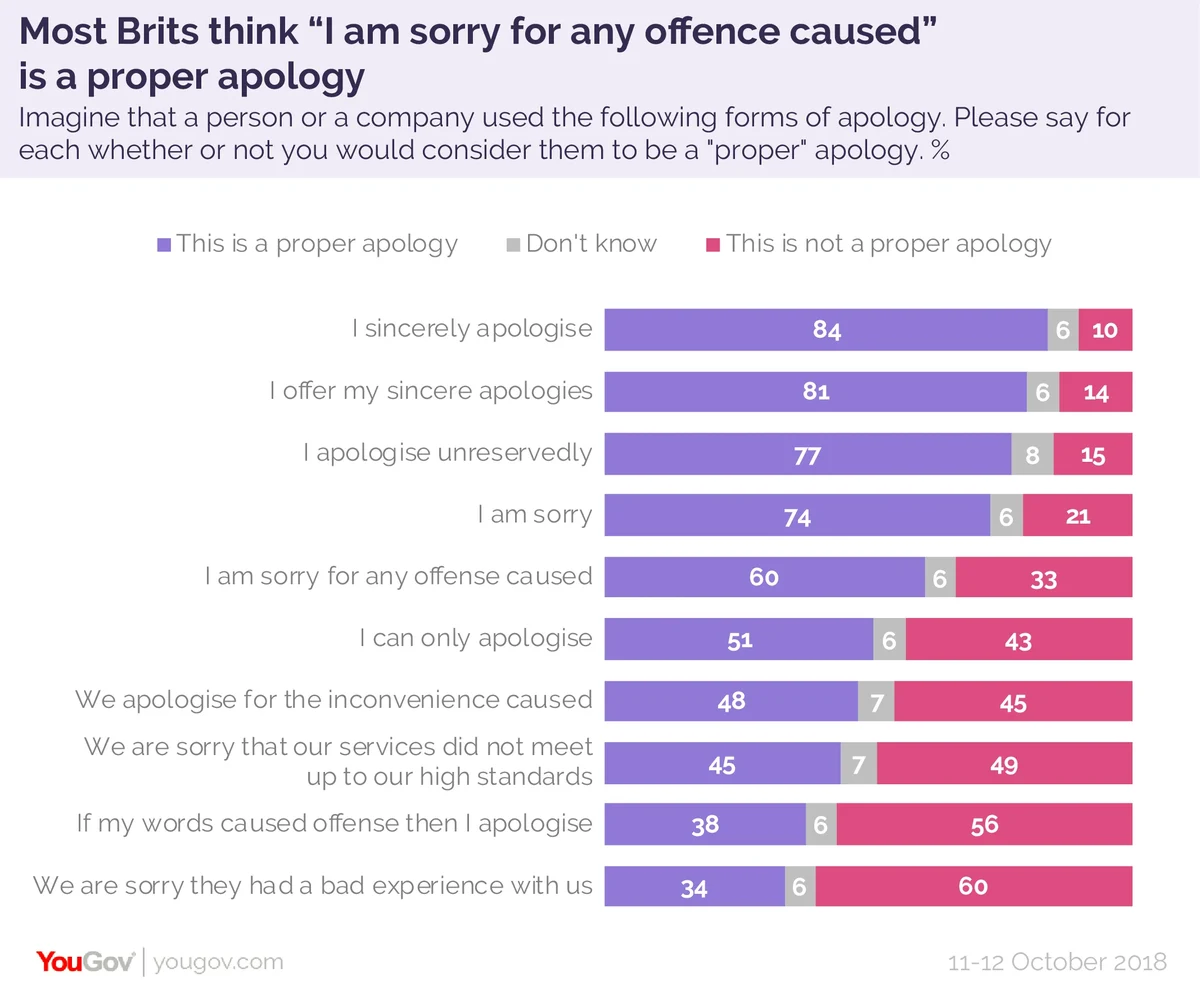It seems that celebrities and public figures are getting away with it when they issue the classic non-apology in the aftermath of a scandal
There’s a well-rehearsed routine for celebrities after making an offensive comment on TV which inevitably ends with a non-committal apology written by a PR firm.
Often they’re scripted to avoid taking any responsibility. A common cop-out is words to the effect of “I’m sorry for any offence caused”, which implies that the speaker thinks their actions were not actually offensive and that it’s the fault of the offended for being so.
While it’s generally expected that people are aware of these non-apologies, new YouGov Omnibus research shows that the majority of Britons are actually taken in by the term.
Six in ten Brits (60%) consider the phrase “I am sorry for any offence caused” to be a “proper” apology – only one in three (33%) do not.
Curiously, despite being semantically identical, the proportion of Britons who believe it a real apology falls to just 38% if the wording is changed to “if my words caused offence then I apologise”.

Sorry seems to be the hardest word
Saying “I sincerely apologise” is the most convincing apology, satisfying 84% of people. Nevertheless, a distrustful 10% still won’t consider it a “proper” apology.
Similarly, if you were to say “I offer my sincere apologies” or “I apologise unreservedly”, you would convince 81% and 77% of people respectively that you really were sorry.
The simple act of saying “I am sorry” is seen as a truthful apology by three quarters of Britons (74%).
At the bottom of the sincerity scale, the obvious corporate cop-out of “we are sorry they had a bad experience with us” was the least accepted of the apologies we listed. Just a third (34%) of Brits say it sounds like a proper apology.
While there are not especially notable differences in how the apologies are perceived between the genders and generations in general, there is one outlier; Brits aged between 18 and 24 are substantially more likely to see the phrase “I apologise unreservedly” as being insincere. Only 56% in this age group believe it a proper apology, compared to between 74% and 85% of their elder peers. Likewise, a third (35%) of young people say that it is not a proper apology, compared to between 12% and 14% of those aged over 25.
Photo: Getty










